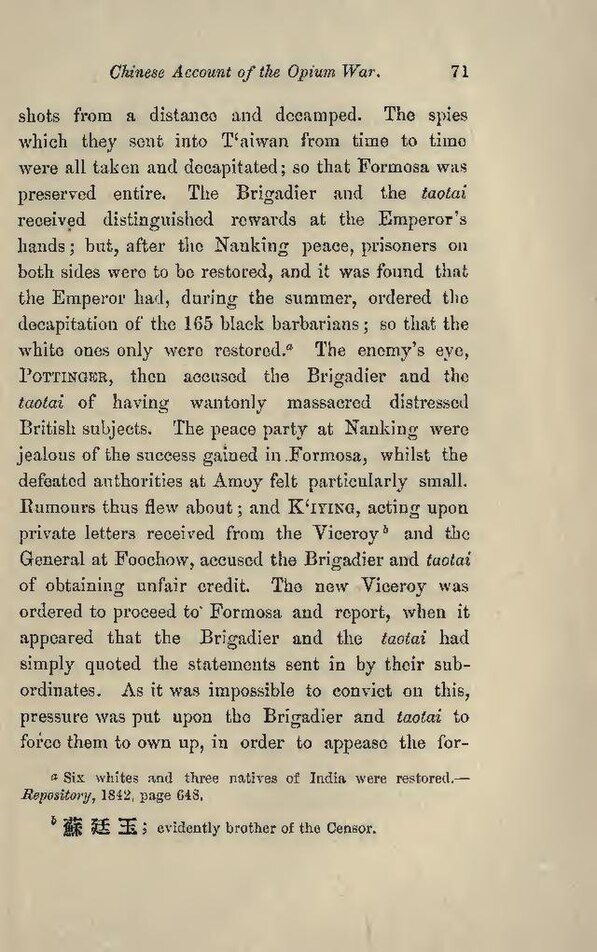shots from a distance and decamped. The spies which they sent into T‘aiwan from time to time were all taken and decapitated; so that Formosa was preserved entire. The Brigadier and the taotai received distinguished rewards at the Emperor's hands; but, after the Nanking peace, prisoners on both sides were to be restored, and it was found that the Emperor had, during the summer, ordered the decapitation of the 165 black barbarians; so that the white ones only were restored.[1] The enemy's eye, POTTINGER, then accused the Brigadier and the taotai of having wantonly massacred distressed British subjects. The peace party at Nanking were jealous of the success gained in Formosa, whilst the defeated authorities at Amoy felt particularly small. Rumours thus flew about; and K'IYING, acting upon private letters received from the Viceroy[2] and the General at Foochow, accused the Brigadier and taotai of obtaining unfair credit. The new Viceroy was ordered to proceed to Formosa and report, when it appeared that the Brigadier and the taotai had simply quoted the statements sent in by their sub- ordinates. As it was impossible to convict on this, pressure was put upon the Brigadier and taotai to force them to own up, in order to appease the for-
Page:Chinese account of the Opium war (IA chineseaccountof00parkrich).pdf/87
This page needs to be proofread.
